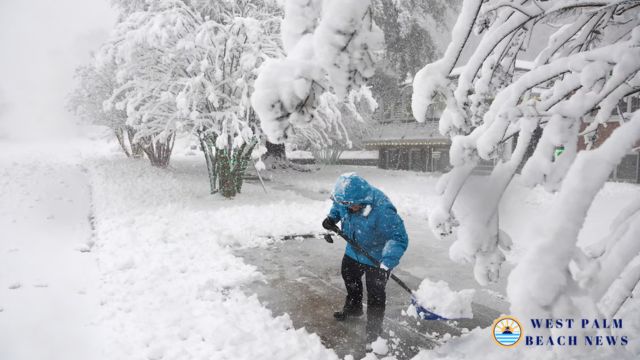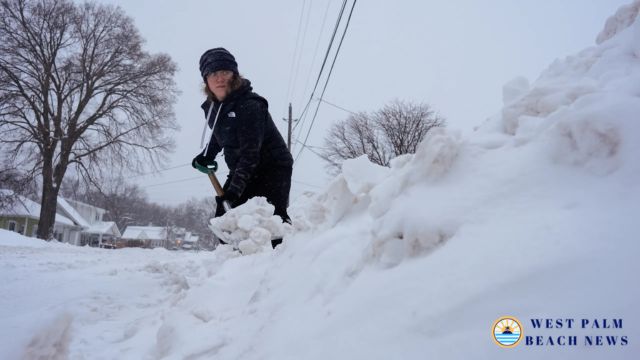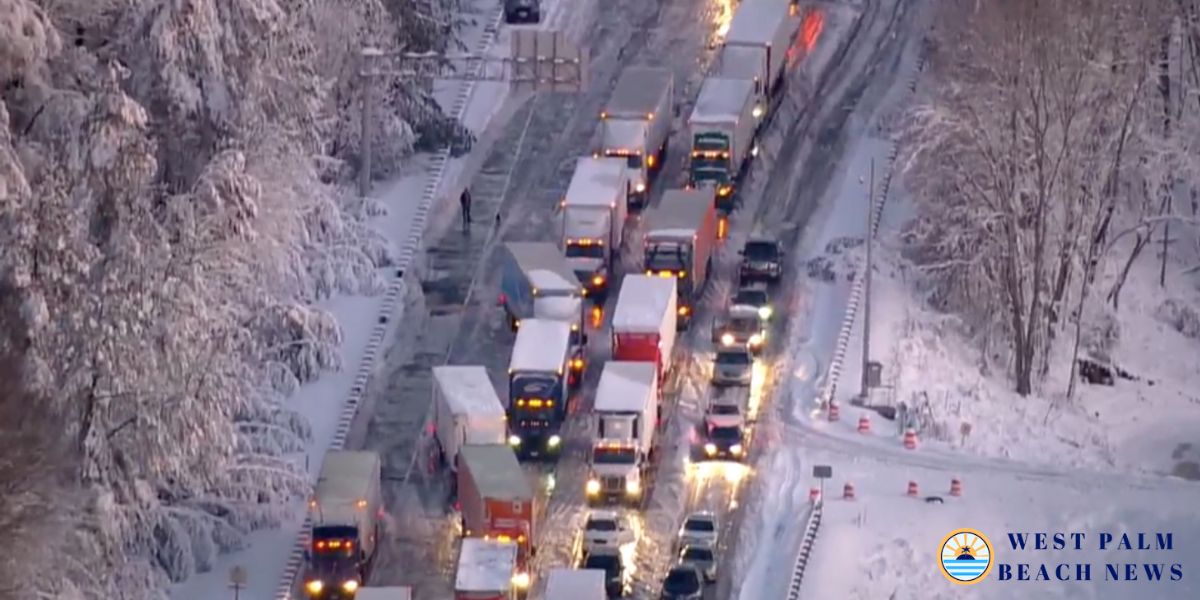WPBN: As the Commonwealth prepares for the first winter storm of 2025, Governor Glenn Youngkin proclaimed a state of emergency throughout Virginia on Friday.
On Sunday, January 5, a strong winter storm is expected to make landfall in Virginia. Youngkin proclaimed a state of emergency two days earlier on Friday, January 3.
Youngkin stressed that this storm is predicted to deliver snow and freezing rain until Monday, January 6, in a news statement issued by his office. The majority of Virginia is predicted to be affected by this severe weather.
Youngkin has access to a range of resources that the state can utilize to get ready for and deal with the storm’s effects now that a state of emergency has been declared.
“I’m encouraging all Virginians, visitors, and travelers to stay alert, monitor the weather forecast, and prepare now for any potential impacts,” Youngkin stated. ”Given the current projected size of the storm, if your post-holiday travel plans have you leaving Sunday, I encourage you to adjust those plans to leave on Saturday. If you find yourself needing to be on the roadways, please heed any warnings and make sure you are keeping yourselves and others safe. Our pre-treating preparations are underway and substantial state and local resources will continue to actively monitor the forecast and respond through the weekend.”
Virginia will experience extremely low temperatures in the week after this storm, with daytime highs predicted to stay below freezing.
Youngkin’s office reports that a gale watch is in effect for coastal Virginia from Friday through Saturday, January 4. Sunday and Monday will see a decrease in winds, but Tuesday is when they are expected to pick up again.
Resources for keeping you and your family safe during severe winter weather were included in the announcement from Youngkin’s office. It also described the storm preparations being made by state agencies.
How can I protect my family and myself?
During a severe weather event, you should have multiple ways to get emergency warnings on hand, the announcement states. You may listen to local emergency notifications in a variety of ways.
These include the Emergency Alert System (EAS) on radio and television, the National Oceanic Association of America (NOAA) notifications on radio, Wireless Emergency notifications (WEA) on your phone, and several mobile apps like the FEMA app.

For information on weather-related watches, warnings, and advisories, you can visit the National Weather Service’s website. You can also subscribe to our Stormtracker8 meteorological team’s severe weather warnings. These can be obtained by email sign-up, which you can do below, or through our mobile app.
Check your weather stripping and insulation to get your house ready. Learn how to turn off your water valve in the event that a pupe bursts, if you aren’t already familiar with the procedure.
If there is a power outage, notify it right away to your service provider. Youngkin’s office cited the Ready.gov advice on power loss preparedness. It offers suggestions such as planning how to power essential gadgets before the storm, keeping your freezers and refrigerators off until the electricity is restored, and researching local heating and cooling facilities.
Nurse in Virginia Faces Charges After Newborns in NICU Injured in Unexplained Incident
Never use a generator, barbecue, camp stove, or any other equipment that burns fuel, propane, natural gas, or charcoal indoors. This covers crawl spaces, garages, basements, and any other covered or partially enclosed location. This poses a serious risk of fire.

You should always keep a fire extinguisher nearby, regardless of the heating appliance you use. Additionally, make sure your carbon monoxide detectors have new batteries.
The hands, feet, and face are most frequently affected by frostbite. To reduce heat loss in certain regions, put on a scarf over your mouth, mittens, and a cap. Additionally, you should wear several layers of loose-fitting, light, and warm clothes rather than one bulky layer.
Moreover, be sure to stay dry. To assist your body maintain heat, change your clothes as soon as they get wet.
Drivers in the City Beware: $60 Fines and Tows Await Those Ignoring Snow Emergency Rules
According to Youngkin’s office, shoveling snow is known to cause heart attacks. When shoveling, take breaks and avoid exerting yourself too much.
Youngkin’s office requested that you check on your elderly or disabled neighbors and family members both during and after the storm.
During a snow storm, you should avoid the roadways as much as you can. However, Youngkin’s office offered the following list of safety tips in case travel is absolutely required:
- Before you depart, check the state of the roads. You can accomplish this by phoning 511 or by going to Virginia 511’s website. Because conditions will change, be sure to verify your whole intended path.
- Before you go, check your car. Your car’s batteries, wipers, antifreeze, tires, and other important components should all be inspected. Before you travel, you should also make sure that your automobile is completely free of snow.
- Verify that your headlights are turned on. It will also make it easier for other drivers to see you, in addition to making it simpler for you to see the road and its circumstances.
- Don’t forget to wear your seatbelt. The majority of accidents caused by winter weather occur when a driver slides into a guardrail, off the road, or into another car. In the event of a collision, wearing a seatbelt will prevent you from being flung around or ejected from your vehicle.
- Reduce your speed and give other people more space. VDOT recommends a minimum following distance of 5 seconds, so go slowly and allow other cars more space than you usually do. This allows you more time to respond in the event that something goes wrong.
REFERENCE

















































